Cults, often centered around charismatic leaders or unique ideologies, provide a fascinating glimpse into human behavior and belief systems. These groups fulfill deep-seated human needs for social connection, belonging, and a sense of purpose. People are drawn to cults for various reasons, seeking community, and identity, and often finding solace in the structure and certainty offered by the group’s beliefs. The charismatic appeal of leaders plays a crucial role, in attracting followers who seek guidance or validation in their lives. This complex interplay of human psychology within cult dynamics not only shapes individual choices but also influences broader societal norms and perceptions.
Studying cults offers valuable insights into the intricacies of human psychology and social interaction. It underscores how collective behaviors and shared beliefs can profoundly impact individuals and society at large. By examining these dynamics, we gain a deeper understanding of the universal human quest for connection and meaning, as well as the complexities of individual autonomy and group influence.
The History And Evolution Of Human Gatherings

Human gatherings have been an essential part of our history, dating back to ancient times. People came together for tribal ceremonies, religious rituals, and communal celebrations, which served to strengthen social bonds, share knowledge, and mark important events. Whether it was a tribal council meeting around a fire or a grand religious festival, these gatherings were crucial for reinforcing a sense of community and shared identity. They provided opportunities for individuals to connect, exchange ideas, and support each other in a collective setting.
As society evolved, so did the nature of human gatherings. The Industrial Revolution brought about urbanization and mass migrations, leading to larger and more diverse gatherings in cities. With advancements in transportation and communication technology, people could connect across vast distances and organize global events, bringing together diverse groups from all over the world. In recent years, social media has revolutionized how we gather, creating virtual communities where individuals can engage with like-minded people without needing to be physically present. Despite these changes, the fundamental need for human connection has remained constant. Understanding the history and evolution of human gatherings offers valuable insights into their profound impact on our collective identity, shaping our values and beliefs over time.
Key Features Of The Human Gathering Cult
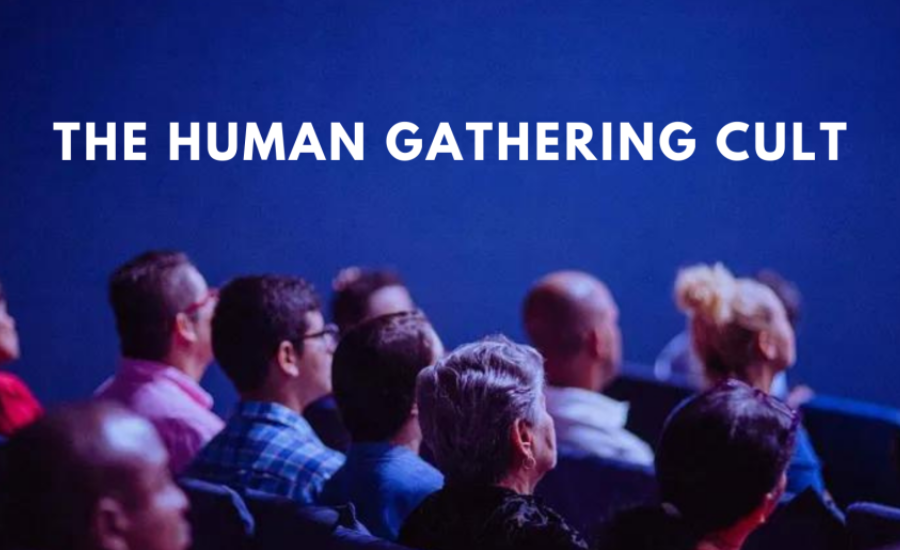
The Human Gathering Cult, founded by Gabriel Marlowe in the late 20th century, is a unique blend of psychology, mysticism, and Eastern philosophy. Marlowe’s vision emphasized personal empowerment, self-discovery, and communal support for holistic well-being. Members of the cult are drawn to its core beliefs that promise a journey of personal growth and spiritual enlightenment. Communal living is a significant aspect of the cult, where individuals partake in various rituals like meditation and chanting. These practices aim to deepen spiritual understanding and foster a strong sense of community and shared purpose.
Despite its appeal and the positive transformations reported by many members, The Human Gathering Cult has not been without controversy. Critics have raised concerns about the level of control and manipulation within these tightly knit communities. Allegations of coercive practices have led to scrutiny and debate about the true nature of its influence. Nonetheless, the cult’s legacy is marked by the profound impact it has had on its followers, offering them a path to deep personal growth and spiritual exploration. This duality of enriching lives while facing criticism captures the complex and multifaceted nature of The Human Gathering Cult.
The Role Of Technology
In today’s digital age, technology plays a dual role in the context of cults, serving both as a potential threat and a valuable tool in combating their influence. Social media and online platforms have become powerful tools for cult leaders to recruit and indoctrinate individuals on a global scale, leveraging the anonymity and reach of the internet to expand their influence.
However, these same technological advancements have empowered researchers, support organizations, and individuals in the fight against cultic groups. Online platforms serve as crucial avenues for sharing information, raising awareness, and connecting with others affected by cults. Communities and resources online provide vital support networks where survivors can share their experiences, find solidarity, and access resources for recovery and healing.
In essence, while technology has amplified the reach and influence of cults, it has also enhanced the ability of individuals and organizations to combat them effectively through education, awareness, and support networks online.
Examples Of Famous Human Gathering Cults
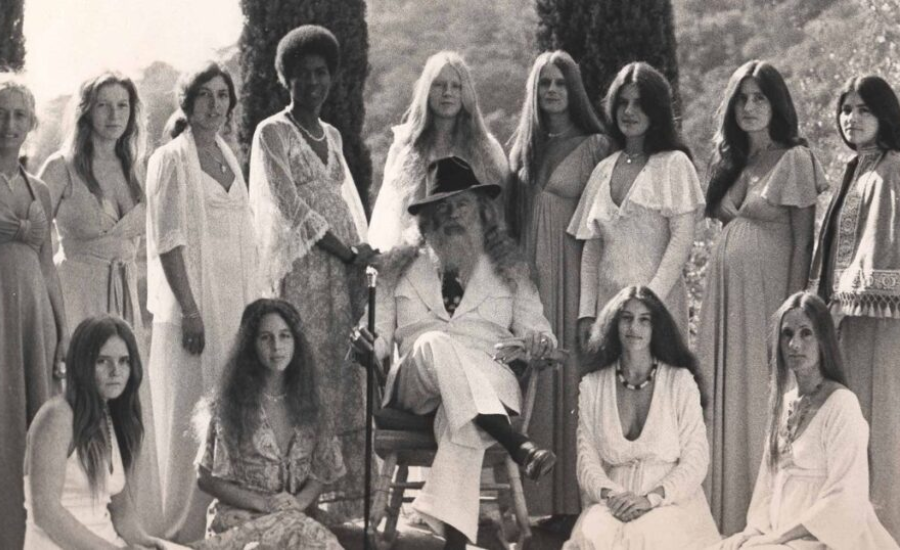
Human gathering cults have made a significant impact on history with their distinct beliefs and practices. One of the most infamous examples is the Heaven’s Gate cult, which gained worldwide attention in 1997 when 39 members committed mass suicide. They believed that by shedding their earthly bodies, they would ascend to an extraterrestrial spacecraft trailing the Hale-Bopp comet. This tragic event shocked the world and highlighted the powerful influence of cult leaders on their followers.
Another notable example is the Branch Davidians, led by David Koresh. In 1993, this group became widely known due to a deadly confrontation with law enforcement in Waco, Texas. The 51-day standoff ended tragically with a fire that consumed the compound, resulting in the deaths of Koresh and many of his followers. This incident drew significant media attention and sparked debates about religious freedom and government intervention.
The People’s Temple, led by Jim Jones, is another harrowing example. In 1978, over 900 members of the cult died in Jonestown, Guyana, in a mass suicide-murder orchestrated by Jones. Followers were coerced into drinking cyanide-laced beverages, leading to one of the largest mass deaths in modern history. This event exposed the dangers of absolute power within cults and the devastating consequences of blind allegiance to a leader.
These examples underscore the extreme influence that charismatic leaders can wield over their followers in human gathering cults. They serve as sobering reminders of the potential for manipulation and tragedy within these tightly controlled communities.
Cultural Impact and Influence Of Human Gathering Cult

The cultural impact and influence of The Human Gathering Cult extend far beyond its internal practices and beliefs, significantly shaping broader perceptions of spirituality, community, and personal development. Here are some key aspects of its cultural impact:
1. Unconventional Spiritual Path
The Human Gathering Cult presents an unconventional approach to spirituality, blending psychological insights with mysticism and communal living. By challenging traditional religious norms, it offers a new perspective on personal growth and spiritual enlightenment, encouraging individuals to seek inner transformation outside mainstream religious frameworks.
2. Focus on Self-Discovery
At the heart of the cult’s philosophy is the emphasis on self-discovery and personal transformation. This focus inspires individuals to delve deeper into their psyches, fostering a commitment to inner growth and authenticity. Members are encouraged to explore and understand their true selves, which can lead to profound personal insights and changes in their lives.
3. Community and Cooperation
The cult’s communal living arrangements challenge the mainstream emphasis on individualism. By highlighting the benefits of collaboration, shared resources, and collective support, it offers a model of living that emphasizes mutual aid and community over personal gain. This approach promotes a sense of belonging and interconnectedness among members, contrasting sharply with the isolated lifestyles often found in modern society.
4. Critical Reflection on Mainstream Culture
The existence and controversies surrounding The Human Gathering Cult provoke important discussions about the boundaries of spiritual groups and charismatic leadership. These debates raise critical questions about power dynamics, ethical practices, and the potential for manipulation within such communities. The cult’s story catalyzes broader reflections on the nature of spiritual authority and the responsibilities of leaders.
5. Influence on Modern Spiritual Movements
The teachings and practices of The Human Gathering Cult have contributed to the wider landscape of New Age movements. Its focus on holistic wellness, meditation, and spiritual exploration has influenced contemporary ideas about personal health and spiritual practice, enriching the diversity of modern spiritual expressions.
6. Impact of Media Representation
The way the cult is portrayed in the media significantly shapes public perception. Whether framed within contexts of controversy or spiritual enlightenment, these representations impact how similar groups are viewed by society. Media coverage can either reinforce stereotypes or offer a more nuanced understanding of such movements, influencing public opinion and discourse.
The Human Gathering Cult’s influence extends beyond its immediate members, affecting societal views on spirituality, community, and personal development. Its legacy is a blend of inspiration for personal growth and cautionary tales about the potential for abuse within tightly-knit communities.
Manipulation And Control
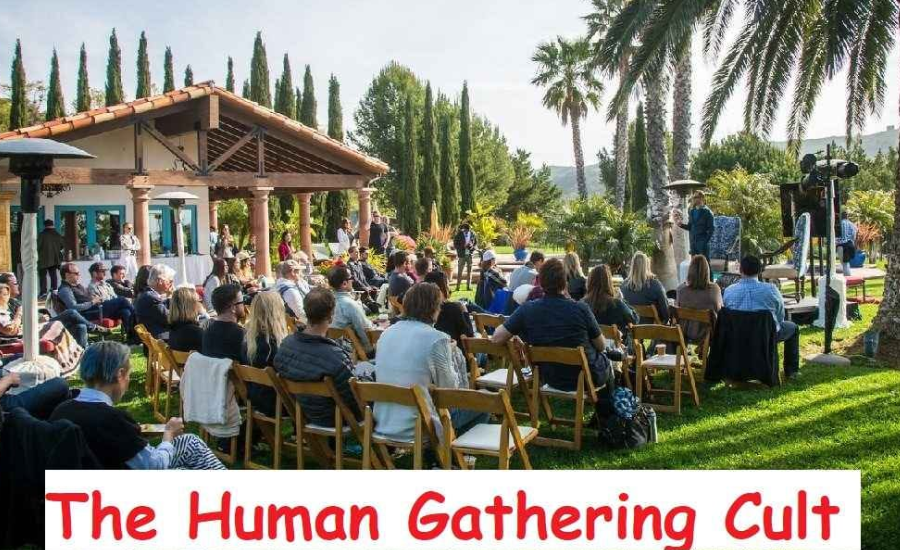
Controversies surrounding human gathering cults have long been a topic of interest and concern in society. These groups often face criticism for their unconventional beliefs, practices, and the influence they wield over their members. One major controversy is the issue of manipulation and control within these cults, where leaders may exert undue influence over followers through psychological tactics. This can lead to a loss of autonomy and critical thinking among members, who may become heavily dependent on the cult for their sense of identity and purpose.
1. Isolation and Exploitation
Another contentious aspect is the potential for harm to be inflicted on members who may be isolated from friends and family or coerced into risky behaviors. This isolation can create an environment where abuse and exploitation go unchecked. Ethical questions arise about freedom of choice and autonomy within these groups, as well as concerns about financial exploitation, as some cults require significant monetary contributions from their followers. The financial burden can place immense strain on members, leading to further entrenchment within the cult due to the invested time and resources.
2. Secrecy and Public Perception
Furthermore, the secrecy and exclusivity that often characterize human gathering cults can lead to suspicion and fear among outsiders. The lack of transparency about their beliefs and activities can fuel speculation and negative perceptions in wider society. This secrecy can also hinder external oversight and intervention, allowing potentially harmful practices to continue unchecked. The controversies surrounding human gathering cults underscore the need for critical evaluation and understanding of these groups’ impact on individuals and communities alike, prompting ongoing discussions about how best to address and mitigate these issues.
3. Empowering Network Access
Joining The Human Gathering offers members access to a vast network of people and resources, significantly enhancing their ability to achieve personal and professional goals. This collective support accelerates individual success and facilitates opportunities that might otherwise be out of reach.
4. Genuine Connections
The Human Gathering fosters an environment where honesty and kindness thrive, welcoming individuals from diverse backgrounds, political views, and interests. This inclusive community cultivates authentic, long-lasting friendships among members, enriching their lives with meaningful relationships and shared experiences.
5. Impactful Change
Members of The Human Gathering are committed to making a positive difference in the world. They focus on tackling pressing issues such as human trafficking, civil rights, and homelessness through collective action and collaboration. By working together, members harness their collective strength to effect meaningful change and contribute to societal improvement.
Diverse Experiences Within The Human Gathering
The Human Gathering embraces a wide spectrum of experiences, formats, and ideologies, reflecting the diversity of its participants and organizers. Each gathering, workshop, or retreat may focus on spiritual awakening, self-discovery, professional development, or social activism, offering participants the opportunity to explore and engage based on their interests and goals.
Personal Accountability in The Human Gathering
At its core, The Human Gathering emphasizes personal responsibility and active participation from its members. While facilitators and organizers provide guidance, support, and resources, the journey of self-awareness and growth relies on individuals’ commitment to engage fully, reflect deeply, and apply the learnings to their own lives. This approach underscores that The Human Gathering is a catalyst for personal transformation, emphasizing sustained dedication and introspection over immediate results.
The Social And Psychological Impact Of Human Gathering Cults
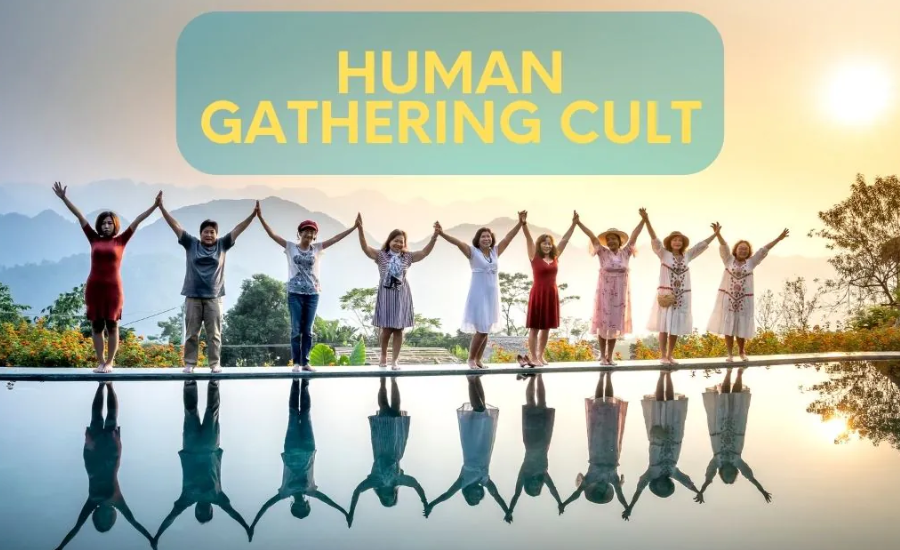
Human gathering cults can exert profound social and psychological effects on individuals and society. These cults often provide a sense of belonging and community, fostering strong bonds among members and offering feelings of acceptance and validation. However, this close-knit environment can also lead to dependency on the group’s beliefs and practices.
Psychologically, human gathering cults frequently employ tactics like manipulation, isolation, and control to maintain influence over their followers. This can result in members relinquishing their autonomy and critical thinking abilities. Moreover, the intense devotion to a charismatic leader or ideology within these cults may cause cognitive dissonance, where members dismiss contradictory information.
Socially, human-gathering cults may isolate members from mainstream society, making reintegration challenging for those who leave. Additionally, the secrecy and exclusivity surrounding these cults can contribute to societal stigmatization and misconceptions about their activities.
Understanding the social and psychological impact of human-gathering cults is essential for raising awareness and supporting individuals affected by these groups. It underscores the importance of providing resources and assistance to those seeking to transition away from such environments and promoting education to prevent susceptibility to manipulative tactics.
Is the Human Gathering fake?
It’s important to note that while many groups like The Human Gathering can offer valuable connections and support, some may encounter challenges. In some instances, members might prioritize status and material success over genuine camaraderie, leading to a superficial atmosphere that feels insincere and unsatisfying.
Additionally, when groups don’t thoroughly vet potential members for their character and ethical standards, it can undermine the trust and integrity essential for meaningful relationships within the community. This lack of screening can dilute the group’s purpose and diminish its effectiveness in addressing important societal issues.
Maintaining a focus on authenticity and ethical standards is crucial for groups like The Human Gathering to uphold their values and foster a supportive environment where members can genuinely contribute to positive change.
The Future of Human Gathering Cults
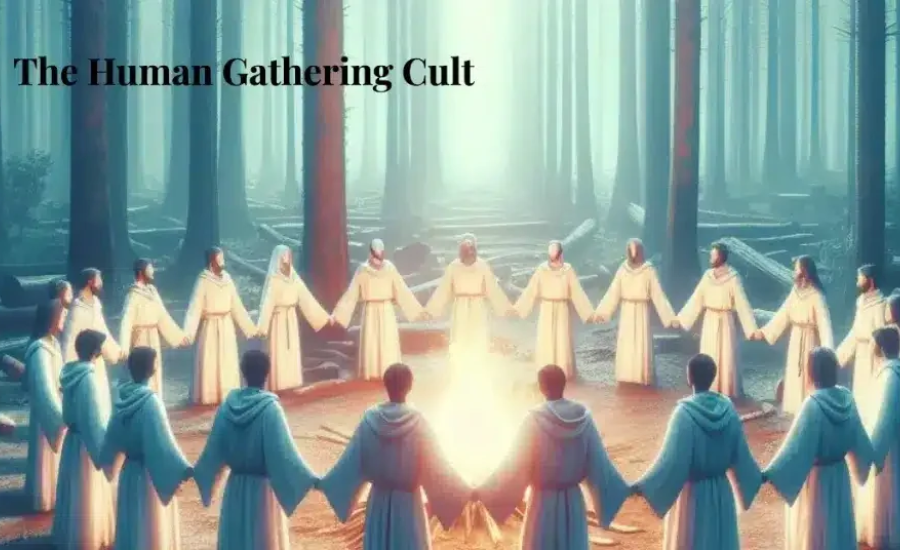
1. Adapting to Change
As society evolves, human gathering cults are likely to transform in response to new technologies and social trends. Future cults may become more sophisticated, utilizing advanced communication tools and social media to recruit and control members. This evolution could make them harder to detect and more challenging to regulate. Continuous research and vigilance will be essential in understanding these new forms and mitigating their potential impact on individuals and society.
2. Navigating Ethical Challenges
Addressing the phenomenon of human gathering cults raises significant ethical questions. Balancing religious freedom with the need to protect individuals from harm is a complex issue. Governments and societies must navigate the fine line between respecting individual rights and ensuring the safety and well-being of their citizens. This includes considering the responsibilities of authorities in monitoring and regulating cult activities without infringing on personal freedoms. By thoughtfully addressing these ethical considerations, we can better manage the challenges posed by future human gathering cults.
Final Words
The Human Gathering Cult is a multifaceted phenomenon that blends spiritual, communal, and ideological elements to foster personal growth and community. Founded with a focus on personal empowerment and holistic well-being, it emphasizes communal living, rituals like meditation, and a supportive environment for spiritual enlightenment. However, like many such groups, it has faced scrutiny for issues of control and manipulation by charismatic leaders, potentially compromising members’ autonomy and critical thinking abilities. Despite controversies, it has positively impacted members through deep personal growth and social activism.
The cultural impact of The Human Gathering extends beyond its internal dynamics, influencing broader perceptions of spirituality and community. It challenges conventional religious norms by offering an alternative spiritual approach that integrates psychological insights with mysticism. The group’s emphasis on personal transformation encourages introspection and authentic relationships among members.
In addressing controversies, The Human Gathering acknowledges challenges such as superficiality and the potential inclusion of individuals with questionable ethics. This underscores the importance of maintaining ethical standards and fostering genuine connections within the community. Overall, understanding its social and psychological effects is crucial for promoting awareness and supporting those affected, emphasizing the need for balanced perspectives on its role and impact in society.
People Also Ask (FAQs)
1. Who is the founder of the Human Gathering?
Wesley Chapman is a founder, thinker, speaker, and author, known for co-founding The Human Gathering, one of the world’s most exclusive and private communities.
2. What is the Human Gathering network?
The Human Gathering is a private network comprising today’s and tomorrow’s most influential leaders who are dedicated to supporting each other’s ambitions. Our community values integrity and character above all else.
3. What are the benefits of the Human Gathering?
Member Benefits
Our members benefit from access to a robust infrastructure of systems and resources designed to maximize their connections and membership. Each service provided by our team aims to save time, increase membership ROI, and foster diverse, authentic, and meaningful human connections.
4. Why do humans gather?
Group Survival
Social bonds have been crucial for human survival. From sharing food to caring for infants and building social networks, our ancestors relied on gathering to meet the challenges of their environments. Over time, early humans gathered around hearths and shelters for meals and social interaction.
Don’t miss the latest updates and alerts visit: Buzz Slash!




